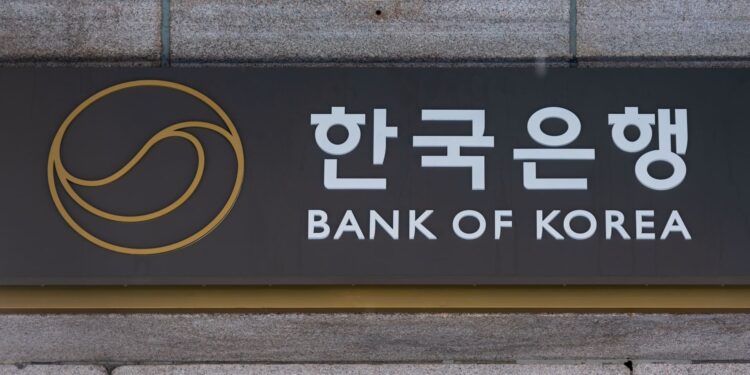The Financial institution of Korea (BOK) in Seoul on Dec. 28, 2024.
Kim Jae-Hwan | Lightrocket | Getty Photos
South Korea’s central financial institution Thursday held its benchmark coverage fee at 3% in a shock transfer, opting to evaluate adjustments in home and exterior financial circumstances after having delivered two back-to-back cuts in its earlier conferences.
Economists polled by Reuters had estimated a 25-basis-points lower.
In its assertion, the BOK stated that whereas inflation had stabilized and family debt had slowed down, “draw back dangers to financial progress have intensified and the volatility of trade charges has elevated as a result of surprising political dangers which have just lately escalated.”
The financial institution additionally stated that uncertainty has additionally elevated on account of “altering home political state of affairs and financial insurance policies in main nations.”
The BOK’s transfer comes amid political turmoil within the nation, with impeached President Yoon Suk Yeol being arrested Wednesday, a primary for a sitting South Korean president.
South Korea’s Kospi was up 1.25% after the choice, whereas the small-cap Kosdaq index rose 1.69%. The South Korean received strengthened about 0.3% to commerce at 1,450.27.

Alex Holmes, analysis director for Asia on the Economist Intelligence Unit instructed CNBC’s “Squawk Field Asia” instantly after the choice that it was a “very difficult” determination for the financial institution.
“I imply, on the one hand, even earlier than all of this political uncertainty, the financial system wasn’t essentially doing very effectively. Sure, pockets of the export sector have been very, highly regarded. , chips, semiconductors, electronics, however different exports have been doing actually not very effectively in any respect,” Holmes stated.
“And truly the home financial system was struggling to realize momentum. So it was type of a extremely dovish background for progress, however on the identical time, it has to stability the truth that the forex has bought off actually fairly markedly,” he added.
The received has fallen greater than the Japanese yen because the begin of October, although the BOK has a smaller rate of interest differential in comparison with the U.S. Federal Reserve, Holmes added.
On the identical time, Holmes famous that 2024 was the primary 12 months that family debt had got here down as a share of GDP, and the BOK is not going to need to lower charges too shortly to stop a rebound.
GDP ‘extremely seemingly’ to overlook forecasts
In its assertion, the central financial institution stated that South Korea was “extremely seemingly” to overlook the BOK’s full 12 months GDP progress forecasts of two.2% for 2024 and 1.9% for 2025, respectively.
The central financial institution added that “export progress is anticipated to sluggish and home demand is forecast to get better at a slower tempo than anticipated on account of deteriorating client sentiment.”
The BOK famous that in December, whereas export progress had “considerably elevated”, consumption restoration had weakened, and development funding “remained sluggish.”
Moreover, the central financial institution additionally stated that “excessive uncertainties stay alongside the longer term path of financial progress”, on account of adjustments in home politics, financial stimulus measures, in addition to the insurance policies of the incoming Trump administration.









